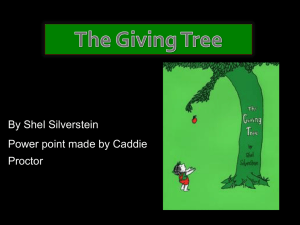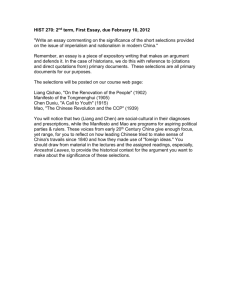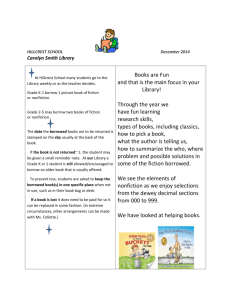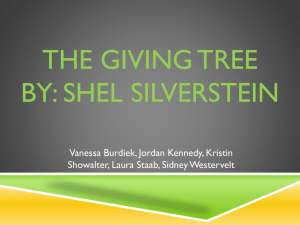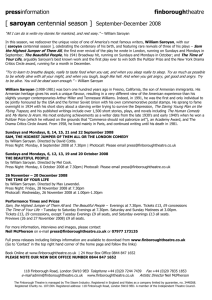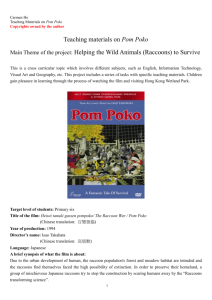Short Answer Questions for Objective 3*Literary/Expository
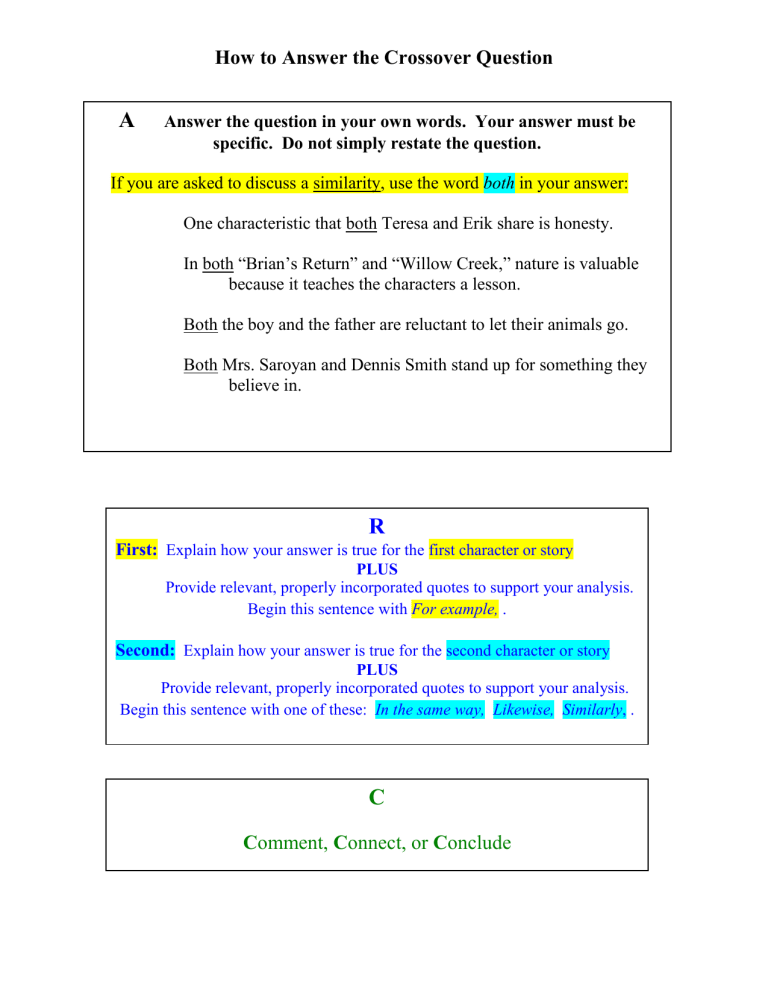
How to Answer the Crossover Question
A Answer the question in your own words. Your answer must be specific. Do not simply restate the question.
If you are asked to discuss a similarity, use the word both in your answer:
One characteristic that both Teresa and Erik share is honesty.
In both “Brian’s Return” and “Willow Creek,” nature is valuable because it teaches the characters a lesson.
Both the boy and the father are reluctant to let their animals go.
Both Mrs. Saroyan and Dennis Smith stand up for something they believe in.
R
First: Explain how your answer is true for the first character or story
PLUS
Provide relevant, properly incorporated quotes to support your analysis.
Begin this sentence with For example, .
Second: Explain how your answer is true for the second character or story
PLUS
Provide relevant, properly incorporated quotes to support your analysis.
Begin this sentence with one of these: In the same way, Likewise, Similarly , .
C
C
omment,
C
onnect, or
C
onclude
Example Answers to Crossover Questions
A. How is the power of nature an important theme in both “Brian’s Return” and “On Willow Creek”? Support your answer with evidence from both selections.
The power of nature is an important theme in both selections because it shows how although humans consider ourselves to be powerful creatures, we have no control over nature. For example, in “Brian’s Return,” Brian did not expect it to rain during his trip, so he wasn’t prepared at all for the storm that occurred during his trip. Brian learns that “…nature would do what it wanted to do, he had to be part of it, part of what it was really like.” Likewise, in “On Willow Creek” Rick Bass, as a child, is astonished during the foggy night waiting for the geese to land.
Although Bass wants them to land, “they did not come.” He has to accept the fact that he had no control over the wild.
B. What is one similarity between the actions of the boy in “Set Free” and the actions of the father in “Summer of the Raccoons”? Explain your answer and support it with evidence from both selections.
Both the boy and father showed great compassion and tenderness when it came to the safety of those they care about. For example, the boy in “Set Free” only wanted the best for his dog. The boy showed his concern when “he hoped that the dog would not get lost,” and then he cared only about “the dog’s approaching happiness” if it were unleashed. In the same way, the father of “Summer of the
Raccoons” wanted the best for his son and the raccoons. The father worried about his son when he asked, “What time did you get in last night?” and also showed motherly qualities when fretting about the raccoons “[getting] lost or hurt out there.”
When you raise a person or an animal, you automatically build a shield of protection and love around them. Sometimes a little overprotectiveness is just a sign of love, as it was with both the boy and the father.
C. What is one characteristic shared by Mrs. Saroyan and Dennis Smith?
Support your answer with evidence from both selections.
Both Mrs. Saroyan and Mr. Smith share the feeling of doubt. For example, Mrs.
Saroyan doubts her son’s investment in a phonograph, yet she herself likes the phonograph more than anyone else once she hears it and wants “to put some of the family money into a second record.” Similarly, Dennis Smith doubts his writings.
Smith had sent some material to different publishers but found “no one willing to publish [him].” To his surprise, Smith had his letter published and subsequently wrote several novels after that.
Both characters have doubt until they realize what they can figure out when they trust in themselves or others.
D. How does the concept of moral dilemma apply to both “The Possibility of Evil” and “Like the Sun”?
In both selections, a character struggles with a moral dilemma. For example, in
“The Possibility of Evil,” Miss Strangeworth has a moral dilemma involving her letters. Writing letters about possible evil is distasteful, and her name “did not belong on such trash.” However, if she doesn’t write the letters, she will not be doing her “duty to keep her town alert to [the possibility of evil].” Likewise,
Sekhar in “Like the Sun” has a moral dilemma about telling the truth. He resolves that for one day he must “give...absolute Truth whatever may happen.” Yet, when his headmaster demands Sekhar’s opinion about his singing ability, Sekhar struggles because he realizes that “truth requires as much strength to give as to receive.”
Both characters suffer a consequence for the choices they make. Miss
Strangeworth’s beloved roses are destroyed, and Sekhar must grade 100 papers in one night.
“Like the Sun” page 220
“Tell all the Truth but tell it Slant” page 224
How does the idea of telling the truth apply to both “Like the Sun” and “Tell all the truth”?


